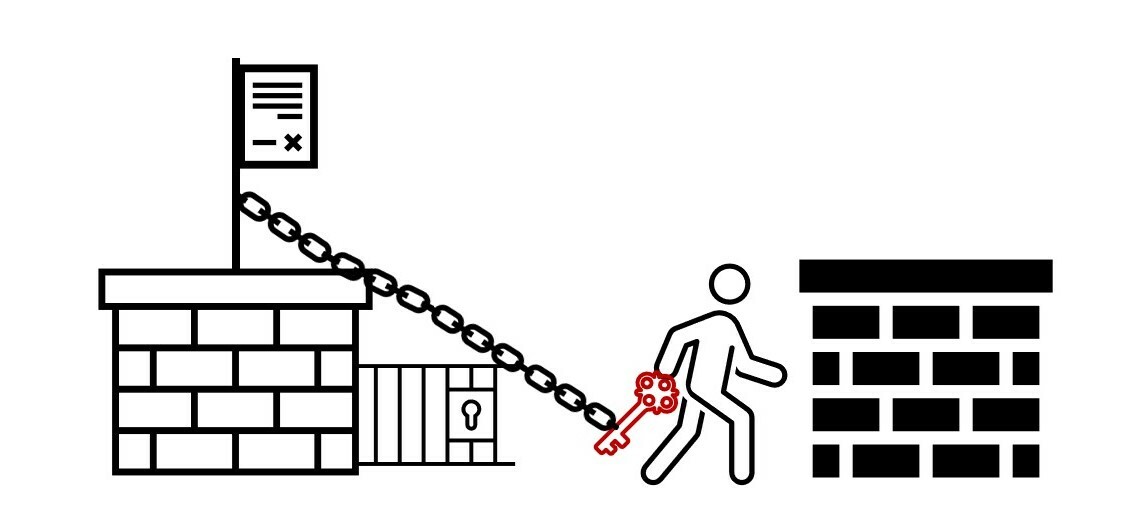Employee Hopping Trend
There is a generational trend toward job-hopping, and the law increasingly supports it. According to SHRM, “the growing Millennial workforce is more focused on racking up new experiences than on banking time at one organization.” The recent D.C. Ban on Non-Compete Agreements proves the trend. The Ban made almost all non-compete agreements and policies unenforceable. The walls between competitors are getting thinner. The endeavor to keep employees in the company becomes more challenging. So, how do you protect your trade secrets from the unwanted eyes and ears of your competitors then?
Non-Disclosure Agreements (NDA)
One crucial step in protecting your trade secrets from competitors’ reach is a well-drafted NDA. NDAs are also known as Confidentiality Agreements. The idea is simple – the person signing the agreement (employee, contractor, or business partner) promises that s/he will not disclose or use confidential information that s/he will have access to.
Many NDA templates are circulating online. But there are several essential things to keep in mind.
- Ensure that you customize your NDA to the specifics of your business and cover all that needs to be covered. If an NDA is too general, it may cause ambiguities that are usually interpreted against the drafter.
- Do not forget to include the Whistleblower Notice of Immunity. The “whistleblower immunity notice” (or cross-reference to a “whistleblower immunity” written policy) is a notice that says that a person is immune from civil and criminal liability if he discloses trade secrets to report a suspected violation of the law. 18 U.S. Code §1833(b)(1).
- If the NDA misses the Notice, then you may not recover punitive damages (which could potentially triple the damages amount). You can also lose the chance to recover your attorney fees, which could be substantial. 18 U.S. Code §1833(b)(3)(C).
- How about the Attorney Fees provision? If you do not include it, you usually pay for your attorney, and the opponent pays for hers (unless the law says otherwise). However, with the attorney fee provision, a losing party pays for the prevailing party’s attorney fees. This provision puts extra pressure on parties to assess their positions early and consider settlement before attorney fees accumulate too much.
There are many other provisions that you may need to consider, but remember that an NDA alone is not enough.
Cultivating a Trade Secret Culture in the Company
Equally important is implementing policies and practices that ensure that the information you want to protect is actually protectable. To be protected, trade secrets must (1) (obviously) be kept secret, and (2) they must have value because of the secrecy. 18 U.S. Code §1839(3).
Keeping something secret becomes more challenging in the culture of social media, immediate share, and clickable data accessibility. That is why NDAs and company policy alone are not enough. There should be an implemented set of well-harmonized practices that promote trade secret awareness. These are some examples of how a company can promote this trade secret culture:
- Identify & Mark all documents containing trade secrets as “Confidential.”
- Regularly educate employees that any company information can be a trade secret, including supplier identities, upcoming price changes, and R&D activities.
- Do not allow employees to take information home, take copies or photos, or share it with others.
- Have clear social media policies that prevent trade secret leakage and implement them.
- Have up-to-date cybersecurity protection.
- Make sure that only necessary people have access to the information.
The list can go on and on. But remember that the decision to disclose is ultimately in the employee’s mind. You cannot tie their feet or gag their mouths. Even NDAs are limited to providing only after-the-fact remedies. So, it is crucial to hire trustworthy people and treat them well.
To sum up, hire trustworthy employees but cultivate the Trade Secret culture as if they are not.
May 11, 2021
